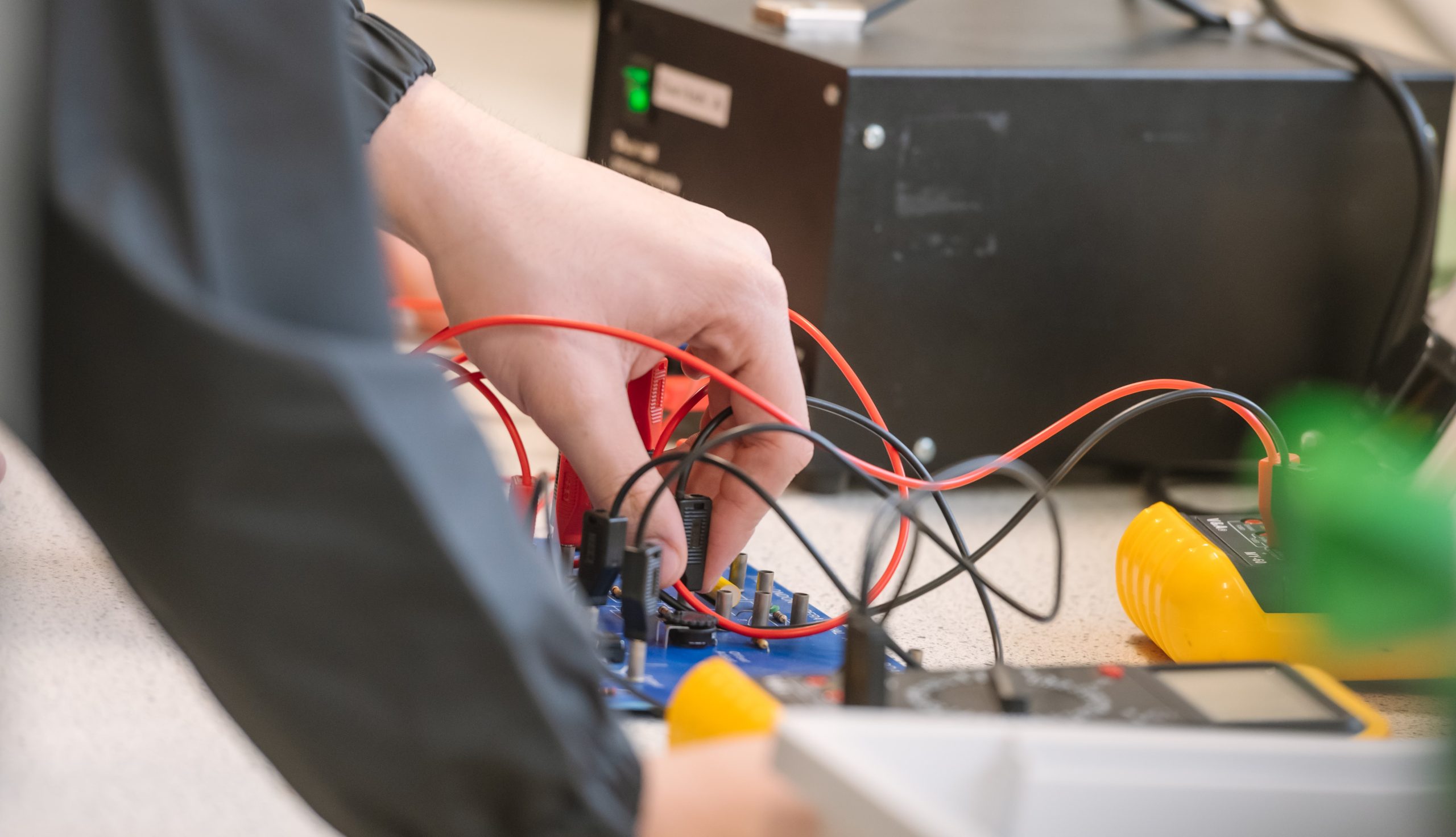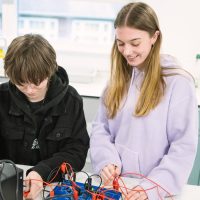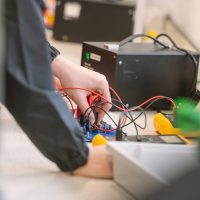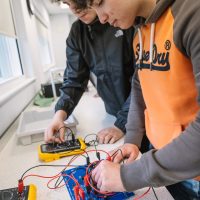
Engineering
Electrical, Electronic and Mechanical Engineers; Aerospace, Automotive and Nuclear Engineers; Civil Engineers and Environmental Engineers. What do they all have in common? They are all engineers!
If you are interested in Engineering then this course is for you! It is a modular course with a mixture of exams and project work and if you combine this with other suitable qualifications, it will allow you to progress to your dream career in engineering.
What units will I study?
These are the five units that make up the Level 3 Extended Certificate:
UNIT 1: Principles of Engineering (Exam)
Learn about static and dynamic forces in a range of engineering situations and their effects; electrical/electronic principles through direct and alternating current applications, analogue and digital systems as well as programmable systems. Through the calculation of various mechanical and electrical/electronic properties in given scenarios, you will also learn the necessary maths used in the engineering industry.
UNIT 2: Materials Science and Technology (Exam)
Learn what is represented by different material properties, the types of material and their relative properties, and how these properties can be affected by different processing techniques. You will also learn about how materials sometimes fail in structures and machines and how to make engineering more sustainable.
UNIT 3: Engineering in Practice (Practical/Portfolio)
Learn how to analyse products, produce engineering CAD drawings, and make a component and a circuit prototype. Working on a product with several parts, you will focus on one component part and one electronic circuit that contributes to the product. You will also evaluate your manufactured prototypes to see how successful they have been.
UNIT 4: Computer-Aided Design (CAD) (Practical/Portfolio)
Learn how to take physical objects and recreate them as a 3D model, making individual designs and changes based on developments you make. This will include learning how to use 2D sketch-based functions to create basic geometry that you can control. You will also learn how to put a design into simulations, allowing you to make design modifications to 3D models to improve them for the consumer.
UNIT 5: Electrical Devices and Circuits (Practical/Portfolio)
Learn how to use circuit theory and fundamental electronics to design, build and test electronic circuits. Develop the skills to build, test, analyse and evaluate DC and AC circuits using the corresponding circuit theory. In addition, you will learn to use diodes, transistors, & digital electronics to solve a range of design challenges. Finally, you will learn how to use a range of hardware and software tools to analyse and evaluate circuit performance.
To achieve the AAQ Level 3 Extended Certificate, which is equivalent to an A Level, you will need to pass all five units.
Course Essentials
Courses Available
CTEC Level 3 AAQ Extended Certificate (equivalent to 1 A Level)
Entry Requirements
PLUS
How The Course is Assessed
60% coursework and 40% externally assessed units. Unit 1 and 2 are assessed through written examinations Units 3, 4 and 5 are assessed internally through assignments set by the exam board (coursework).
Career Pathways
Engineering is welcomed by universities. However, you are advised strongly to check the specific entry requirements of individual universities via the UCAS website. Some universities may request A Level Maths alongside. It can also lead to apprenticeships in engineering and supports direct progression to a variety of jobs in the sector.
Transferable Skills
The ability to learn independently, research actively and methodically, give presentations and group working. Analytical and problem-solving skills, reading technical texts, effective writing skills, interpersonal skills such as communicating, working collaboratively, negotiating and project management.
Enquiries To
John Higginson: jmh@varndean.ac.uk





